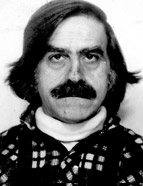

Therefore, his real eschatological horizon would never have been a state-ruled, authoritarian society but rather a space for freedom that would foster the full manifestation of individuality. “My ‘socialism’ […] was held within my liberalism” (Dicionário..., op. cit., pp. 9-11, passim up to p. 33). Consequently, he was once again able to claim his formerly renounced sympathy for António Sérgio’s liberalism and thereafter to resume and theorize some of the long-lasting traces of his youthful experiences and feelings while consolidating his axiological, social and political universe. In these belligerent years of his late maturity, a fertile period for ideological nuances, he progressed towards a vague sense of ecologism, a school of thought that had been widely theorized and disseminated in the international public arena of the early 1970s, while always tending towards distinct forms of libertarian ideology, albeit not explicitly.
In the controversy triggered by his view on the extraordinary events of the Paris uprising published in Maio… (1970) [May…], a true writ of emancipation from the traditional model of revolutionary Marxism signed by the former and much celebrated ideologist of the Portuguese radical left wing, Saraiva found himself up against a number of dumbfounded adversaries from the various lines of national Marxism. Álvaro Cunhal, his former comrade and secretary-general of the Portuguese Communist Party, was one of them. But it was undoubtedly Mário Sottomayor Cardia, a qualified philosopher, who presented the greatest theoretical difficulties. It was also Sottomayor Cardia who penned the most structured critical response to Saraiva’s article in the name of, it should be noted, a remarkably flexible type of Marxism. It is worth mentioning that Sottomayor Cardia, a future Socialist Cabinet minister, atoned for the harshness of his arguments by paying Saraiva one of the most emphatic intellectual tributes he had ever received in his life (Sobre o antimarxismo contestatário ...[On the anti-Marxism protest] (1971), p. 11).
In the meantime, in Amsterdam, Saraiva found himself once again at the centre of various conspiracies with discrete xenophobic undertones, which wove a real Kafkian web around him. Once again, as a result of psychological exhaustion, he considered leaving the city in search of a new professional destination. However, the well-timed Portuguese revolution of 1974 facilitated a much longed for return to his home country, thus breaking the evil spell that had seemingly been cast upon him, condemning him to the fate of an eternal intellectual wanderer.
